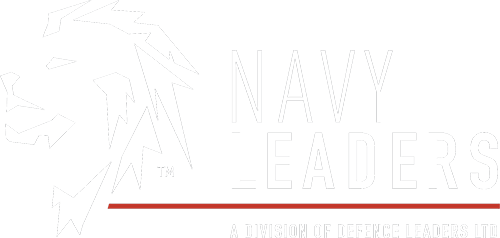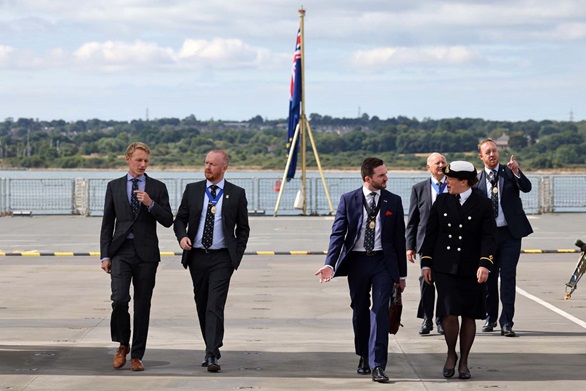RFA's day as the Navy's vital support arm celebrates 12 months of global achievements
)
Well to highlight its achievements over the past 12 months, the Royal Navy’s crucial support arm – which provides fuel, supplies, a floating hospital facility, aviation training and support for amphibious and minehunting operations – celebrated ‘Livery Day’ in Southampton.
RFA Mounts Bay, which has spent the spring and summer supporting ceremonial events (the Queen’s Platinum Jubilee on the Thames) and Royal Marines training (Norway and the Netherlands), berthed in the Solent city.
For much of the late 20th Century, Southampton Water and Marchwood military port were the spiritual home of the service, although today its ships gravitate more towards Falmouth and Portland when they are alongside in UK waters.
Livery Day aims to highlight the work and above all successes of the Royal Fleet Auxiliary over the past 12 months, drawing attention to a Service indispensable to the day-to-day operations of the Royal Navy, yet largely unknown by the general public.
It’s not been held since 2019 due to the pandemic – throughout which the RFA itself continued to operate globally.
This year’s event was hosted by RFA Head of Service, Commodore David Eagles and attended by Admiral Sir Jonathon and Lady Sarah Band (Sponsor of RFA Mounts Bay) and invited representatives from the Honourable Company of Master Mariners and Worshipful Companies of Carmen, Cooks, Fuellers and RFA affiliated organisations, including representatives from Greenwich Hospital.
They were treated to guided tours of the ‘Mighty Mounts’, which carries the military firepower and kit needed to support a Royal Marines leading, with bunk space for more than 350 commandos.
After chatting with the 80-strong RFA crew over lunch, guests joined Commodore Eagles who thanked all present for their ongoing support for the often-unsung service.
“It has been an immense pleasure to see and meet you all today for my first RFA Livery Day as Head of Service,” he said.
“I would like to express my gratitude to Admiral and Lady Sarah Band, all of the Livery Companies and Affiliates for attending and for the ongoing generous support that they continue to provide to the RFA.”
As for our opening question… well here’s just some of what the Royal Fleet Auxiliary has been up to these past 12 months:
It has (deep breath) provided fuel for British and allied warships undergoing training with the Royal Navy off Plymouth; flown the flag for the UK at Dutch Navy Days while supporting commando/landing craft training in the Netherlands; helped train future Merlin and Wildcat aircrew and engineers to operate at sea courtesy of RFA Argus; provided round-the-clock support for minehunter operations in the Gulf (RFAs Lyme and Cardigan Bay); worked with its US counterpart to see how they can help each other more effectively, including making use of commercial tankers; supported Queen’s Platinum Jubilee events; ventured into the Arctic in support of patrols of the High North by RN vessels; paid tribute to its forebears who served in the Falklands 40 years ago; provided the UK’s only seagoing Primary Casualty Reception Facility (Argus again).
And then there was the carrier strike group, where two RFAs – Fort Victoria (fuel/dry stores/ammo) and Tidespring (largely fuel) – provided the Queen Elizabeth task group most of the things they needed ‘on the go’.
Fort Victoria transferred just short of 900 loads of ammunition, provisions, spare parts, medical supplies, mail and F35/Merlin spares weighing more than 350 tonnes to other vessels in the group.
And during 44 replenishments she delivered nearly 9,000 cubic metres of fuel into the tanks of six friendly warships – that’s nearly nine million litres of diesel, or enough to keep 150,000 cars running.
As for Tidespring, she pumped nearly 58 million litres of fuel into warship fuel tanks and provided over 14 million litres of aviation fuel for F35 and helicopter operations by the task group, plus enough fresh water to fill over 2,100 baths.
Time alongside was limited (seven in every ten days were spent at sea), with leave often severely restricted, even cancelled, during the eight port visits by the pandemic.

